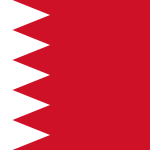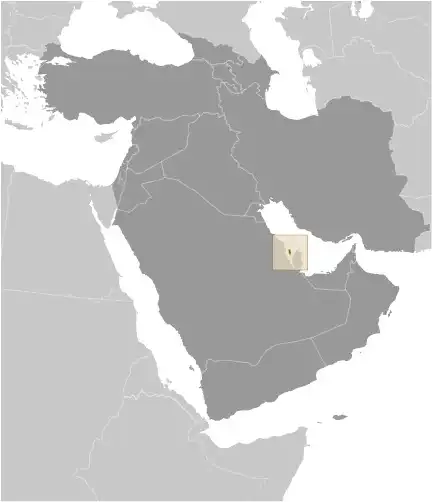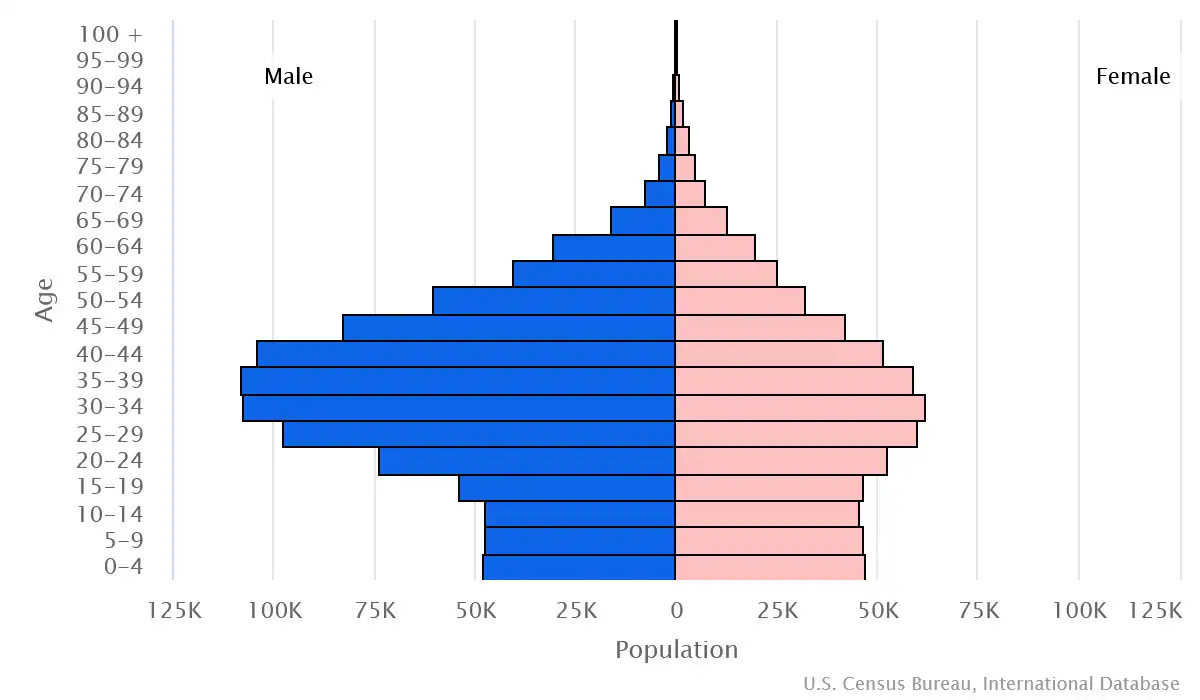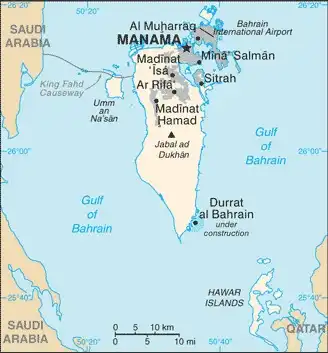
Bahrain
Country Data Dashboard

| Government type: | constitutional monarchy |
| Capital: | Manama |
| Languages: | Arabic (official), English, Farsi, Urdu |
People & Society
Ethnicity (2020 est.)
Religion (2020 est.)
Age structure

Economy
Economic overview
high-income, growing Middle Eastern island economy; oil and aluminum exporter with diversification led by services, construction and manufacturing; regional finance and tourism hub; high public debt linked to oil revenue dependence and limited tax base; vulnerable to water reservoir depletion
Real GDP (purchasing power parity) in Billion $
Real GDP per capita in $
Exports & Imports in billion $
Top 5 Import Partner in 2022 (51%)
Top 5 Import Commodities in 2022
- iron ore ⛓️
- aluminum oxide 🪙
- cars 🚗
- gold 💰
- ships 🚢
Top 5 Export Partner in 2022 (51%)
Top 5 Export Commodities in 2022
- aluminum 🪙
- refined petroleum ⛽
- iron ore ⛓️
- aluminum wire 🪙
- iron blocks 🧱
Geography
Map

Area
Natural resources
- oil 🛢️
- associated and nonassociated natural gas 💨
- fish 🐟
- pearls 🦪
Climate
arid; mild, pleasant winters; very hot, humid summers
Historical Background Information
In 1783, the Sunni AL-KHALIFA family took power in Bahrain. In order to secure these holdings, it entered into a series of treaties with the UK during the 19th century that made Bahrain a British protectorate. The archipelago attained its independence in 1971. A steady decline in oil production and reserves since 1970 prompted Bahrain to take steps to diversify its economy, in the process developing petroleum processing and refining, aluminum production, and hospitality and retail sectors. It has also endeavored to become a leading regional banking center, especially with respect to Islamic finance. Bahrain's small size, central location among Gulf countries, economic dependence on Saudi Arabia, and proximity to Iran require it to play a delicate balancing act in foreign affairs among its larger neighbors. Its foreign policy activities usually fall in line with Saudi Arabia and the UAE. In 2022, the United States designated Bahrain as a major non-NATO ally.
The Sunni royal family has long struggled to manage relations with its Shia-majority population. In 2011, amid Arab uprisings elsewhere in the region, the Bahraini Government responded to similar pro-democracy and reform protests at home with police and military action, including deploying Gulf Cooperation Council security forces. Ongoing dissatisfaction with the political status quo continues to factor into sporadic clashes between demonstrators and security forces. In 2020, Bahrain and the United Arab Emirates signed the US-brokered Abraham Accords with Israel. In 2023, Bahrain and the United States signed the Comprehensive Security Integration and Prosperity Agreement to enhance cooperation across a wide range of areas, from defense and security to emerging technology, trade, and investment.
